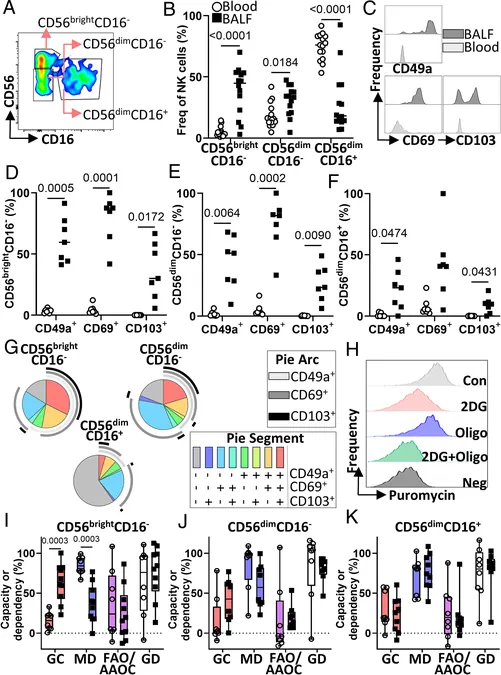
Lung-Resident Natural Killer Cells: The Secret Warriors of Your Immune System!
2024-10-10
Author: Daniel
Lung-Resident Natural Killer Cells: The Secret Warriors of Your Immune System!
Researchers at Trinity College Dublin, operating from St. James's Hospital, have unveiled groundbreaking insights into the unique behavior of natural killer (NK) cells residing in the lungs. Their study, published in the prestigious journal *Proceedings of the National Academy of Sciences*, highlights the pivotal role these immune cells play in respiratory health and offers hope for innovative treatments for lung diseases such as chronic obstructive pulmonary disease (COPD), lung cancer, and tuberculosis.
Typically, the lungs maintain a low-glucose environment, but during infections, glucose levels surge, allowing immune cells to spring into action. NK cells are essential players in the early defense against pathogens, and the newly explored tissue-resident NK cells—those that live long-term in the lungs—have now been found to possess remarkable metabolic properties that differ from their circulating counterparts in the blood.
Major Highlights of the Study
1. **Metabolic Distinction Unveiled**: Scientists discovered that lung-resident NK cells have a unique metabolic profile, allowing them to swiftly metabolize glucose in response to changing conditions, particularly during infections. This metabolic adaptability sets them apart from blood-borne NK cells.
2. **Glycolytic Powerhouse**: The research revealed that these NK cells possess a higher glycolytic capacity, which equips them to generate energy and critical metabolites more efficiently. This efficiency translates to a rapid immune response, vital for combating infections effectively.
3. **Primed for Action**: Perhaps the most intriguing finding is that lung-resident NK cells appear to be on standby, ready to activate their metabolic pathways at the first sign of increased glucose—almost as if they are waiting for a "sugar rush." This readiness emphasizes their specialized adaptation, indicating that these immune sentinels are uniquely designed for their lung environment.
4. **Future Implications for Treatment**: Understanding the distinct metabolism of lung-resident NK cells opens significant avenues for research into dysfunctional NK cells in various respiratory diseases. This suggests that targeting metabolic pathways may lead to groundbreaking immuno-supportive therapies for conditions like cancer and chronic infections.
Lead author Dr. Gráinne Jameson expressed her excitement about the implications of this research, emphasizing that the metabolic differences between lung and blood NK cells could allow for tailored inhalable therapies, revolutionizing treatments for numerous lung-related ailments.
As we delve deeper into the mysteries of the immune system, these findings raise urgent questions: Could we harness the power of lung-resident NK cells to unleash new treatments for otherwise insurmountable respiratory diseases? Stay tuned, as the next big breakthrough in lung health may be just around the corner!

 Brasil (PT)
Brasil (PT)
 Canada (EN)
Canada (EN)
 Chile (ES)
Chile (ES)
 España (ES)
España (ES)
 France (FR)
France (FR)
 Hong Kong (EN)
Hong Kong (EN)
 Italia (IT)
Italia (IT)
 日本 (JA)
日本 (JA)
 Magyarország (HU)
Magyarország (HU)
 Norge (NO)
Norge (NO)
 Polska (PL)
Polska (PL)
 Schweiz (DE)
Schweiz (DE)
 Singapore (EN)
Singapore (EN)
 Sverige (SV)
Sverige (SV)
 Suomi (FI)
Suomi (FI)
 Türkiye (TR)
Türkiye (TR)